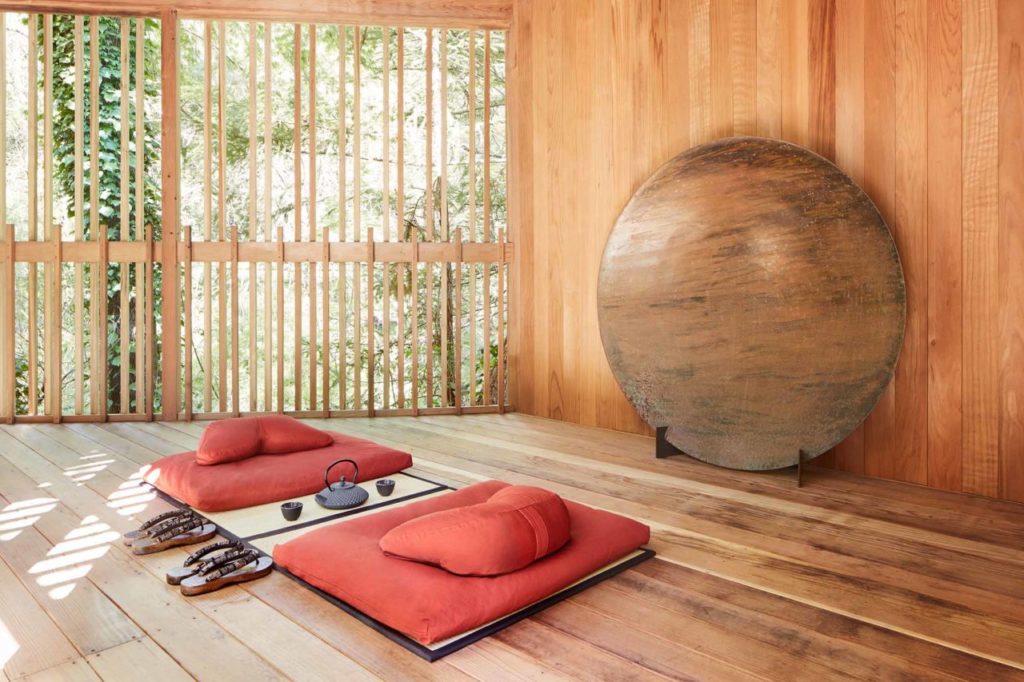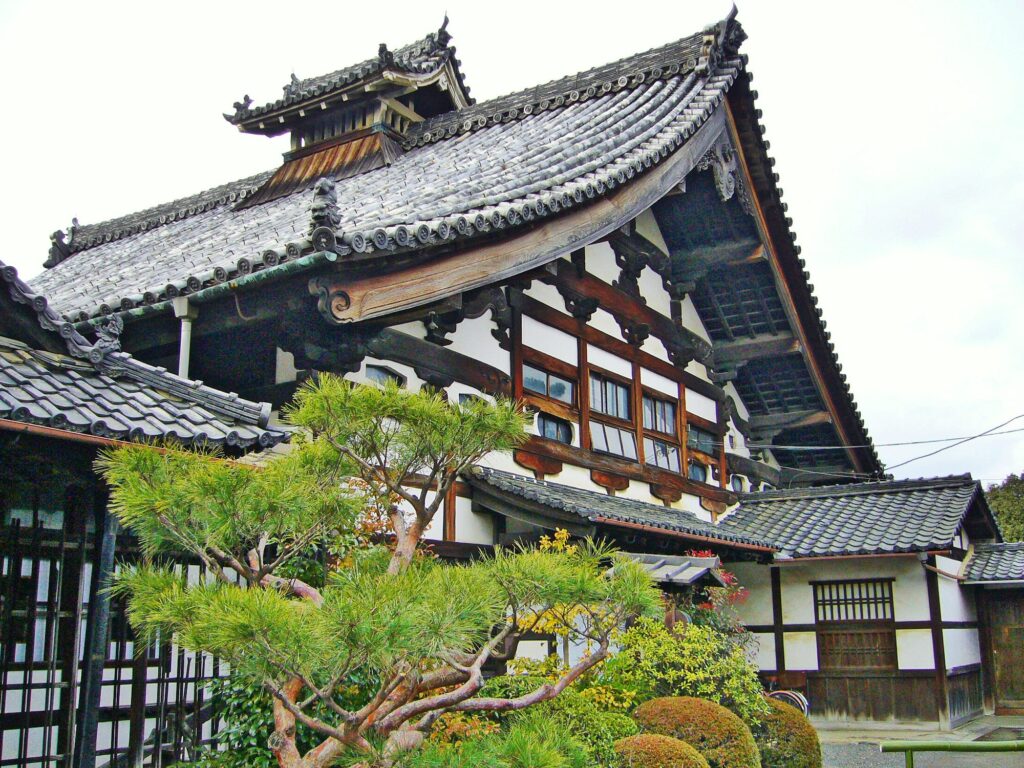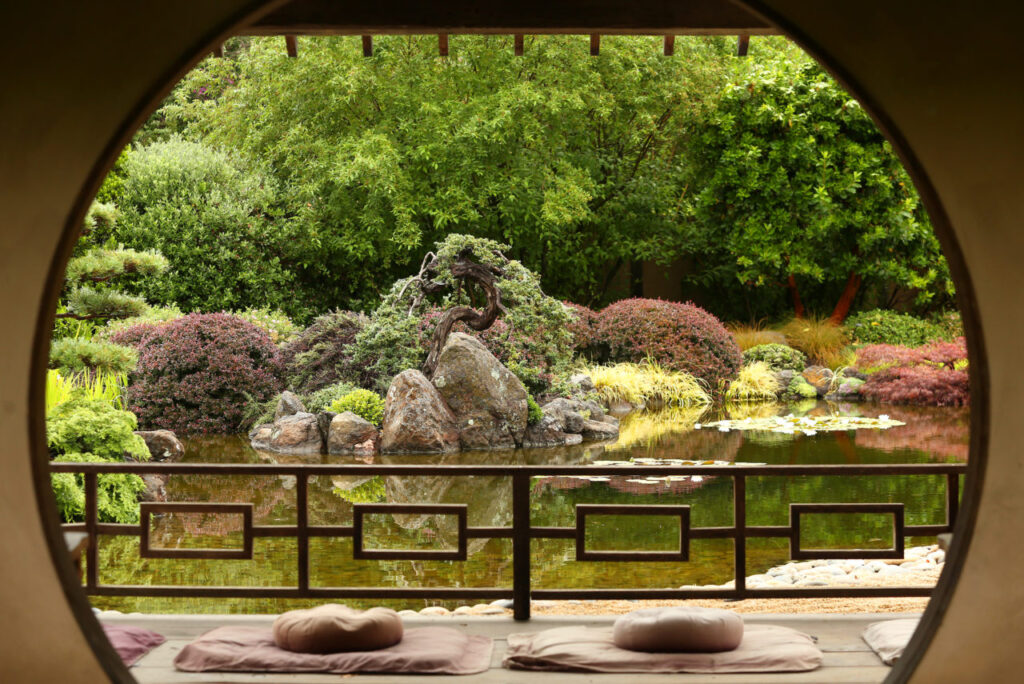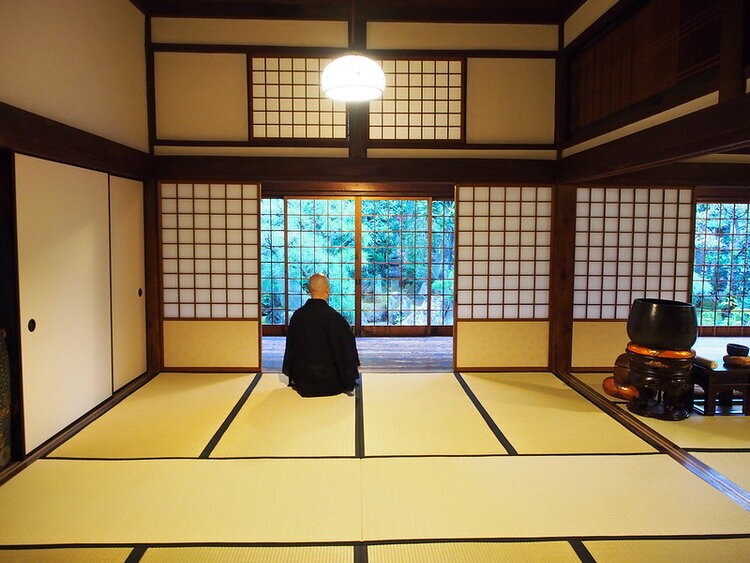Japan, a land where ancient traditions seamlessly blend with modern innovations, offers a haven for those seeking solace and self-discovery. Nestled amidst the lush landscapes and serene settings are retreats that embody the essence of Zen philosophy. These retreats, scattered across the country, invite visitors to embark on a journey of introspection and tranquility.
In the heart of Kyoto, the cultural capital of Japan, lies the renowned Ryoan-ji Temple. Surrounded by meticulously manicured rock gardens, this Zen haven provides a space for silent contemplation. As visitors meander through the gravel pathways, the artistry of simplicity unfolds. The stillness of Ryoan-ji becomes a canvas for inner reflection, allowing individuals to disconnect from the chaos of daily life and embrace the beauty of the present moment.
Meditative Escapes in Nature’s Embrace

Venturing beyond the cityscape, Japan’s natural landscapes become a canvas for meditative escapes. The mist-covered mountains of Koyasan, adorned with ancient cedar trees, cradle secluded temples that have been sanctuaries for meditation for centuries. Here, amidst the whispers of rustling leaves and the fragrance of pine, visitors can immerse themselves in the timeless practice of Zen meditation.
In the Aomori Prefecture, the enchanting Tanesashi Coast offers a unique retreat where the rhythmic sounds of waves crashing against the shore become a natural mantra. The vast expanse of untouched coastline provides a contemplative space, encouraging introspection as the sun dips below the horizon. It’s a place where the boundary between self and nature dissolves, fostering a profound connection with the surrounding environment. Maybe not on the Japanese coast, but houses in Boca Raton provide the same pleasant impression of peace, providing a comfortable retreat after a busy day.
Architectural Wonders of Serenity
Japan’s commitment to architectural brilliance extends to its Zen retreats, where traditional design meets contemporary minimalism. The Eiheiji Temple, nestled in the Fukui Prefecture, stands as a testament to this marriage of aesthetics and spirituality. With its wooden corridors and meticulously arranged gardens, Eiheiji embodies the harmony sought in Zen practice.
As visitors explore the temple’s labyrinthine passages, the architectural details become a form of meditation in themselves. The interplay of light and shadow, the subtle creak of wooden floorboards beneath one’s feet—all contribute to an immersive experience that transcends the visual, engaging the senses in a dance of mindfulness.
Culinary Zen: Nourishing the Body and Soul
In the pursuit of Zen, nourishing the body is as vital as calming the mind. Japanese cuisine, with its emphasis on fresh, seasonal ingredients and mindful preparation, becomes a culinary journey that aligns with the principles of Zen philosophy. In Kyoto’s Kikunoi restaurant, each dish is a work of art, meticulously crafted to engage the senses and evoke a sense of mindfulness. With a good IT provider like Managed IT Services in San Antonio, you can provide yourself with uninterrupted internet and access to numerous culinary shows with which you can master the secrets of Japanese cuisine.
Tea ceremonies, deeply rooted in Zen traditions, also offer a sensory experience that extends beyond the palate. The ritualistic preparation and consumption of matcha tea become a form of meditation, promoting a sense of presence and appreciation for the fleeting beauty of each moment.
The Path Continues: Bringing Zen Home
As the journey through Japan’s Zen retreats unfolds, the question arises: how can one carry the essence of this experience back into the fabric of everyday life? The answer lies in integrating mindful practices into daily routines. Whether it’s creating a small meditation space at home or incorporating the art of tea preparation into daily rituals, the principles learned in Japan’s retreats can be seamlessly woven into the tapestry of modern living.
Embracing Zen in Urban Retreats
While the serene landscapes of Japan’s traditional retreats provide an idyllic backdrop for meditation, urban spaces too have embraced the Zen philosophy. Tokyo, a bustling metropolis known for its vibrant energy, is home to modern sanctuaries that offer respite from the urban hustle. Zen-inspired wellness centers and meditation studios have emerged, providing city dwellers with a haven to recalibrate their minds amidst the chaos. The health clinic in Marietta GA suggests using this technique for all people who are under stress because it will help them to get closer to themselves and maintain a strong spirit in a healthy body.
In the heart of Tokyo’s Shibuya district, a sleek, minimalist meditation studio named Satori Space stands as a testament to the integration of Zen principles in contemporary urban life. The studio’s muted color palette and clean lines create an atmosphere of simplicity, inviting individuals to leave the noise of the city behind and delve into a state of inner stillness. Guided meditation sessions, infused with elements of mindfulness, become a refuge for those seeking a moment of tranquility amid the urban clamor. Beauty courses can also help an individual connect with the environment and reduce unnecessary stress from life.
Tech and Zen: A Harmonious Alliance

In the age of technology, where screens and notifications often dominate our attention, there is a growing movement to integrate Zen principles into the digital realm. Mindfulness apps, designed to guide users through meditation and breathing exercises, have gained popularity as tools for fostering a sense of calm in the midst of the digital storm. Due to great progress and the need for this type of therapy, more and more people are starting businesses in that profession, that’s why selling business advisors is here to turn those ideas into action.
One such app, ZenMind, combines ancient wisdom with modern technology, offering personalized meditation sessions tailored to individual preferences. Through a seamless interface, users can embark on virtual journeys inspired by the landscapes of traditional Zen retreats or participate in live-streamed meditation sessions led by experienced instructors. This harmonious alliance of tech and Zen provides accessibility to mindfulness practices, bridging the gap between ancient traditions and contemporary lifestyles. One of the also very necessary applications nowadays is certainly the roadside assistance app.
Zen and the Arts: Aesthetic Contemplation
Beyond traditional meditation practices, the principles of Zen extend into various forms of artistic expression. Ikebana, the Japanese art of flower arranging, exemplifies the union of aesthetics and mindfulness. Each carefully placed stem and petal becomes a reflection of the impermanence of beauty, encouraging practitioners to appreciate the fleeting nature of life. If flowers are still a difficult choice, in Japan you can find items such as beautiful wine glasses with carved floral motifs.
In bustling cities like Osaka, art galleries dedicated to Zen-inspired contemporary art have become spaces for aesthetic contemplation. Installations that play with light and shadow, evoking a sense of impermanence and transience, create an immersive experience that mirrors the meditative journey. These urban oases of artistic expression invite individuals to engage with the present moment through visual stimuli, fostering a connection between creativity and mindfulness. Music is also a strong stimulant for a sense of peace and connection with oneself, which is why there are many buyers of vinyl records with soothing Japanese tones.
Culinary Zen: Beyond the Plate
While Kyoto’s Kikunoi restaurant showcases the artistry of Japanese cuisine, urban spaces have also embraced the concept of culinary Zen in innovative ways. In Osaka, a trend of Zen-inspired dining experiences has emerged, where chefs not only craft visually stunning dishes but also curate immersive dining environments that engage all the senses.
Many Japanese dishes need hot water to be prepared so if you have problems with your water heater be sure to do a water heater repair.
One such dining experience, known as “Sensory Savor,” combines culinary expertise with sensory exploration. Guests are blindfolded and led through a multi-course meal where the focus is not only on taste but also on the textures, aromas, and sounds of each dish. This sensory dining journey becomes a form of mindfulness, encouraging participants to savor each moment without the distraction of visual stimuli. That moment can sharpen your senses for the world around you, which can be significant so that you can easily notice and solve a problem when it arises. This is how emergency restoration services in Charlotte, solve the problem quickly and easily if it arises.
Zen in Motion: Mindful Movement Practices
The practice of Zen extends beyond stillness to incorporate mindful movement. In cities like Nagoya, urban dwellers are embracing activities such as tai chi and qigong as ways to cultivate a sense of inner calm amid the fast-paced urban lifestyle. Parks and open spaces transform into impromptu sanctuaries where individuals gather to synchronize breath with movement, fostering a connection between mind and body. One of the beautiful sports that combines companionship with animals and physical activity is horse riding, and practicing it with personalized saddle blankets is also a form of escape from everyday life.
Yoga studios infused with Zen philosophy have also become popular, offering a holistic approach to physical and mental well-being. Classes incorporate elements of Zen meditation, encouraging participants to bring mindfulness to each pose and transition. As individuals flow through sequences, they become attuned to the present moment, finding balance and tranquility in the midst of urban chaos.
Zen and Workplace Well-being
Recognizing the benefits of Zen principles in promoting well-being, companies in Japan are integrating mindfulness practices into the workplace. In cities like Fukuoka, corporate offices have designated meditation spaces where employees can take short breaks to engage in mindfulness exercises. These spaces, adorned with simple decor and calming elements, provide a refuge for employees to recharge their minds and enhance productivity. Colorado Springs SEO company applies a similar form of meditation to maximize the commitment of their employees.
Workshops and seminars on stress reduction and mindfulness have become commonplace in corporate settings, emphasizing the importance of mental well-being in professional life. The integration of Zen principles in the workplace reflects a broader cultural shift toward prioritizing holistic health and recognizing the interconnectedness of mental and physical well-being.
If you are working from home you can hire a remodeling contractor to help you create a perfect workspace in your house.
Zen for All: Inclusive Mindfulness
The evolution of Zen philosophy in Japan is marked by a commitment to inclusivity, extending the benefits of mindfulness practices to diverse communities. In cities like Hiroshima, community centers offer free meditation sessions open to all, regardless of background or experience. These initiatives aim to make mindfulness accessible to a broader audience, recognizing its potential to enhance the well-being of individuals from all walks of life. Ads for such courses often appear, but if you have a problem with Google ads or your Google ads are suspended, contact a professional to solve the problem.
Inclusive mindfulness events, such as citywide meditation gatherings and Zen-inspired art exhibitions, create spaces for people to come together and connect through shared experiences. The ethos of inclusivity reflects a deep understanding that the principles of Zen are not exclusive to a particular demographic but can be embraced by anyone seeking a path to inner peace and self-discovery.
Zen Fusion: Blending Cultural Influences

As Japan continues to evolve in a globalized world, there is a fascinating fusion of Zen philosophy with elements from other cultures. In cities like Sapporo, a trend of “Zen fusion” has emerged, blending traditional Japanese Zen practices with mindfulness techniques from around the world.
Meditation retreats that incorporate practices from Tibetan Buddhism, yoga, and even mindfulness traditions from Western cultures have gained popularity. This cross-cultural exchange enriches the landscape of meditation offerings, providing individuals with a diverse array of tools for self-discovery and well-being. The melting pot of influences creates a dynamic and inclusive approach to Zen, transcending cultural boundaries and resonating with a global audience. Using CBD oils can boost your meditation sessions.
Zen Future: Nurturing a Mindful Society
As Japan continues to navigate the complexities of modernity, the future of Zen appears to be deeply intertwined with the collective well-being of society. In cities across the country, initiatives focused on mindfulness education in schools aim to instill the principles of Zen from an early age. Students engage in practices such as meditation and mindful breathing, fostering emotional intelligence and resilience.
The integration of Zen philosophy in healthcare is also on the rise, with hospitals incorporating mindfulness-based interventions to support patients in managing stress and promoting healing. The vision of a mindful society, where individuals are equipped with the tools to navigate the challenges of life with equanimity, is gradually taking shape.
In the tapestry of Japan’s evolving landscape, the threads of Zen philosophy continue to weave through the fabric of everyday life. From urban retreats and tech-infused mindfulness to inclusive community initiatives and cultural fusion, the journey of Zen unfolds as a dynamic and adaptive force. As individuals across the country and beyond embrace the principles of Zen in various forms, the timeless wisdom of mindfulness resonates as a guiding light, illuminating a path to inner peace and harmony in the midst of life’s ever-changing currents.


